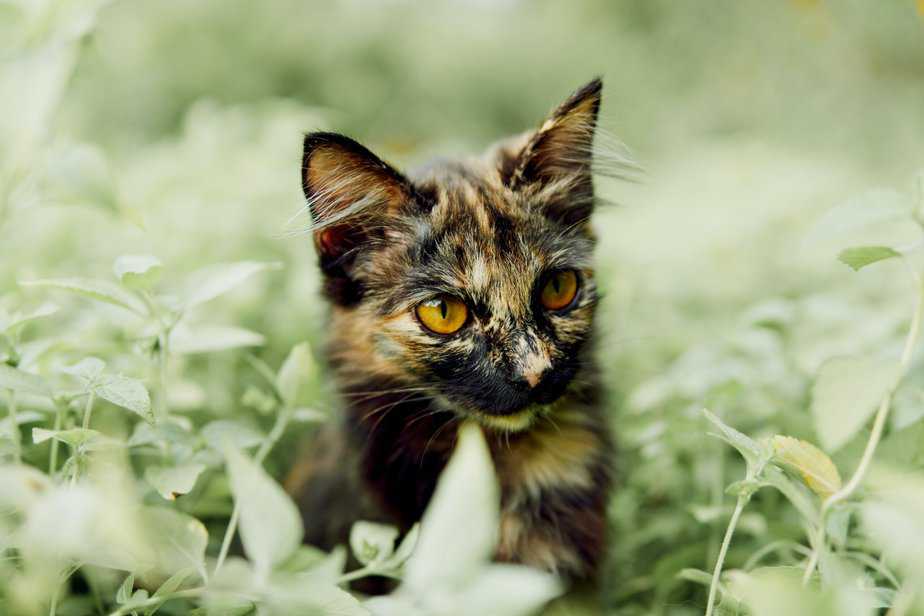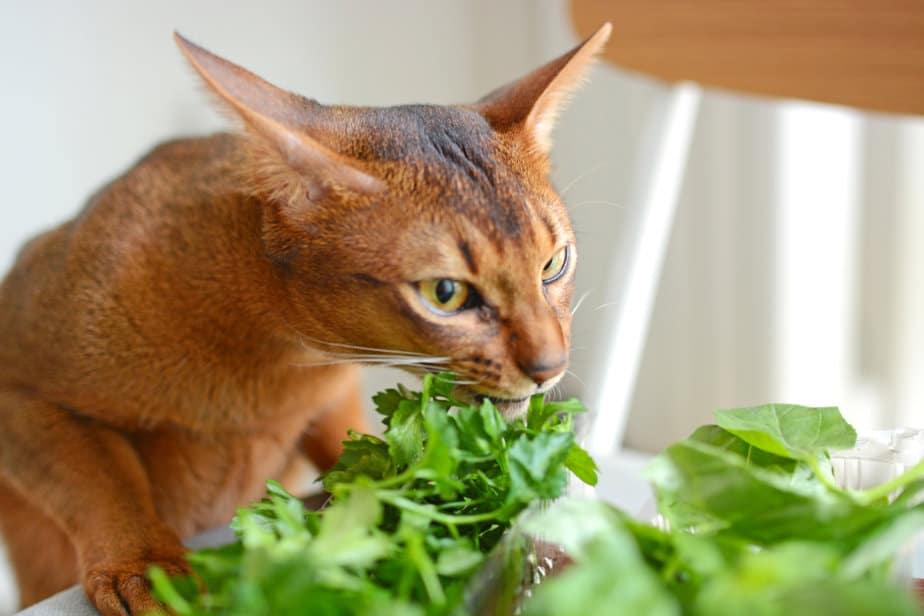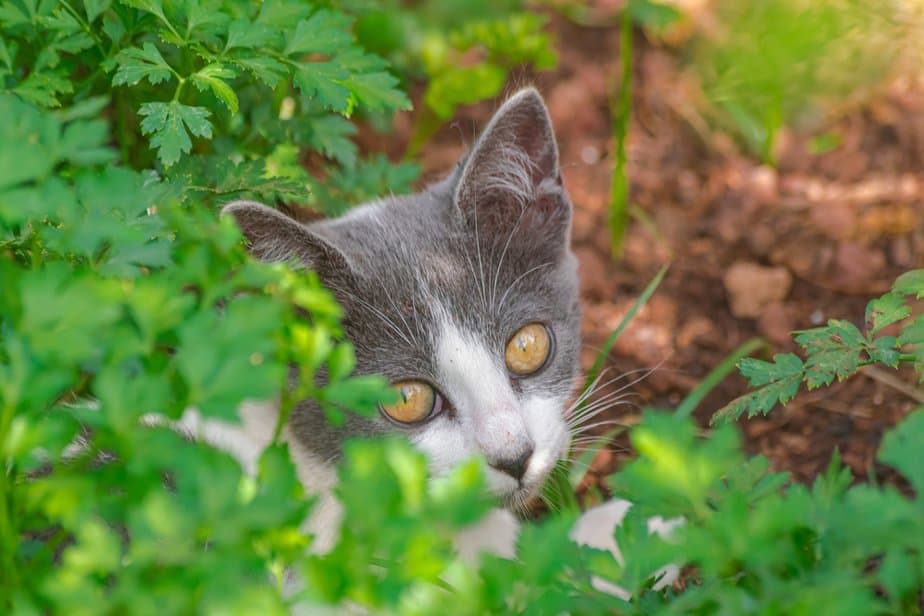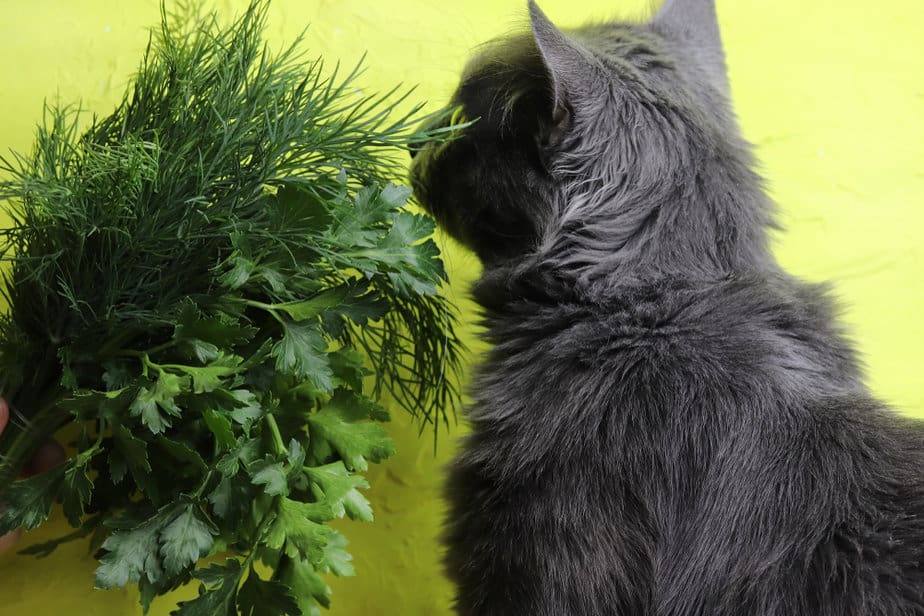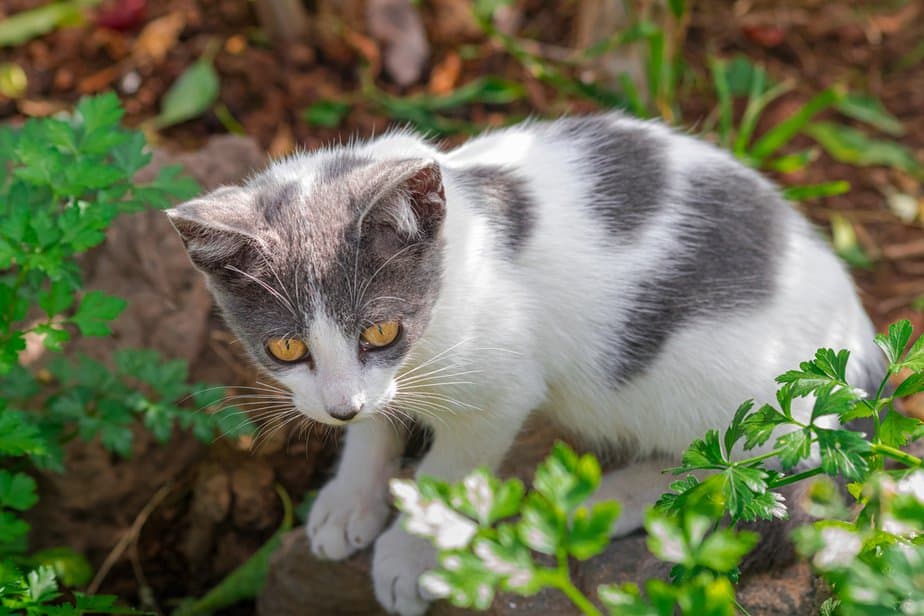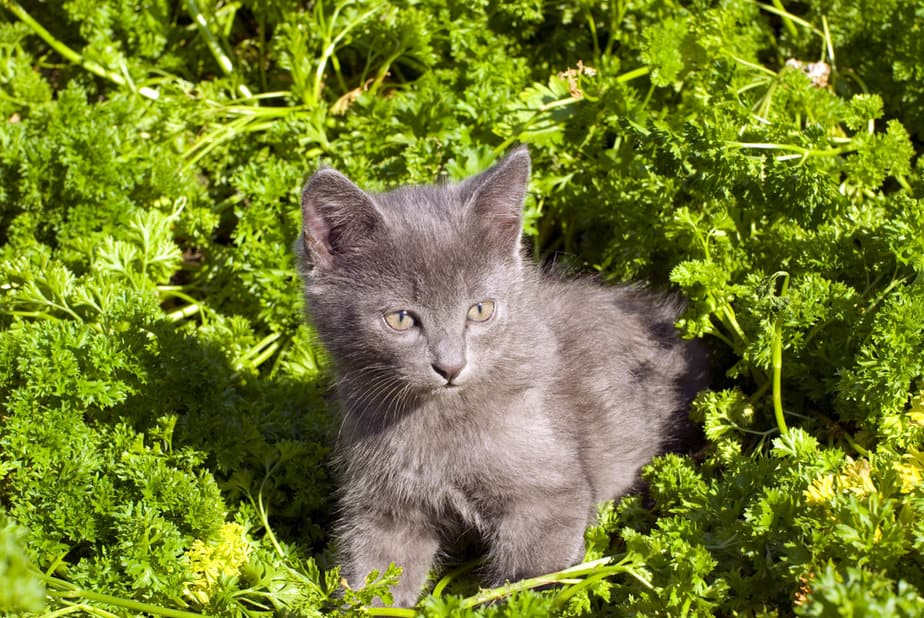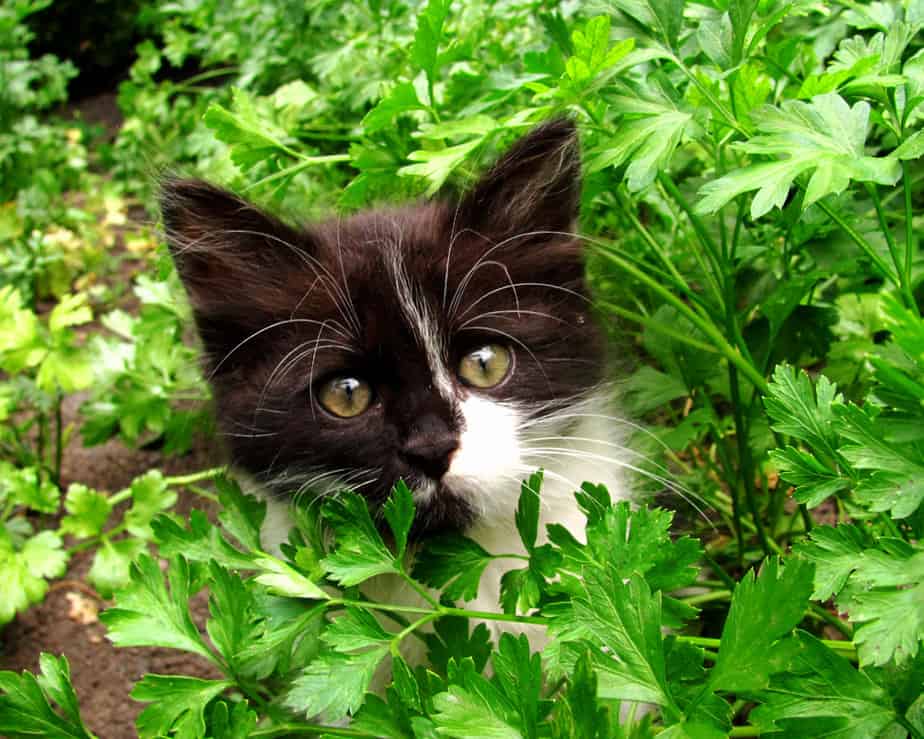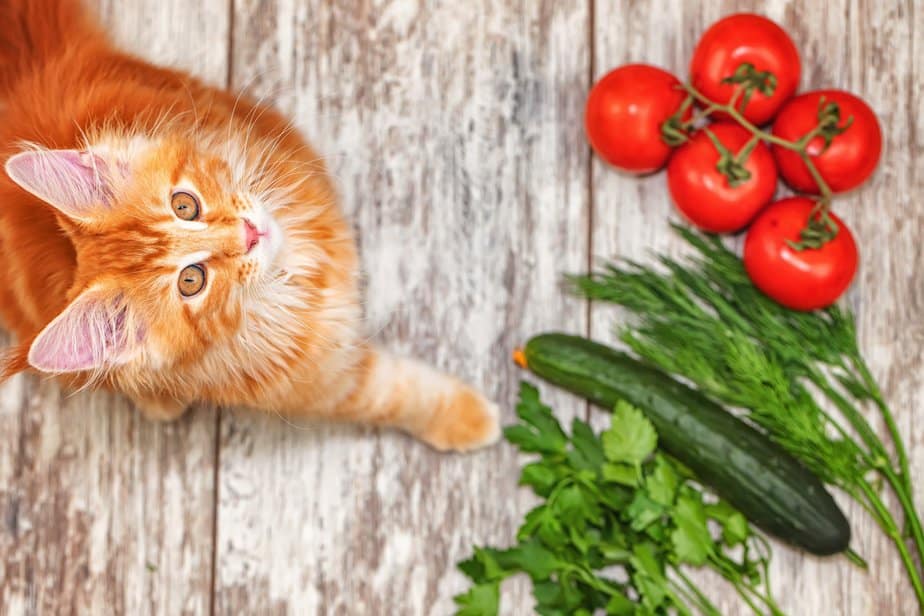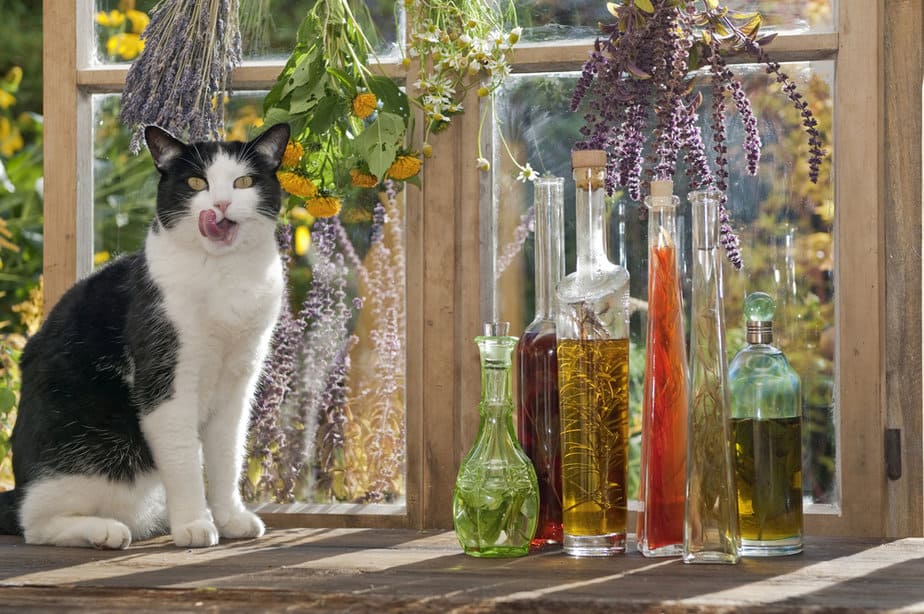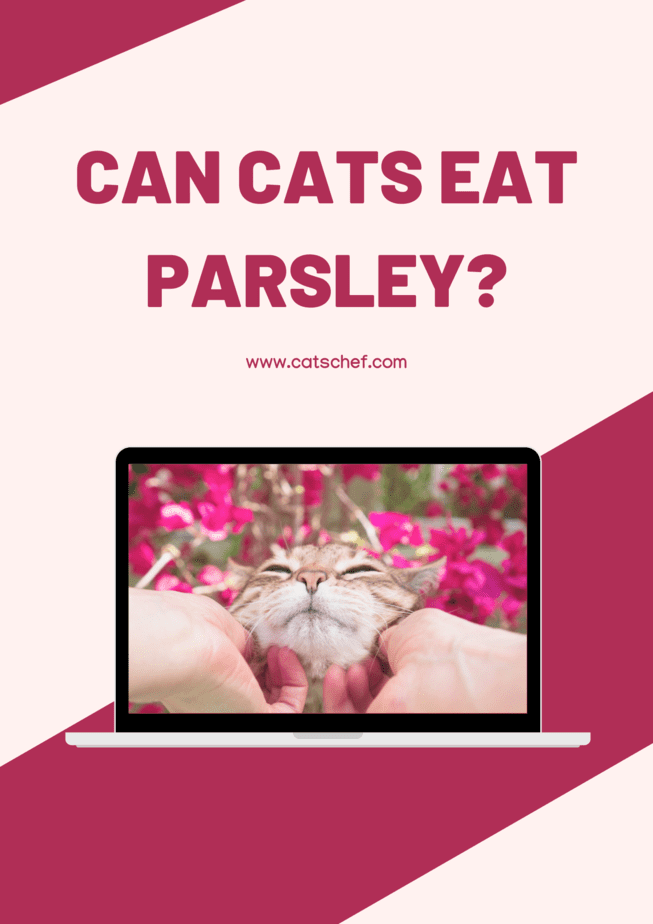📖 Table of Content:
- What’s parsley?
- So, can cats eat parsley?
- What’s so good about parsley?
- What’s so bad about parsley?
- What’s the best way to feed your cat parsley?
- Can cats eat fresh parsley?
- Can cats eat dried parsley?
- Can cats eat parsley root?
- Can cats eat other herbs?
- What’s the conclusion? Can cats eat parsley?
Purr parents around the world know the struggle of spending several hours a day growing your herb garden only to then have it destroyed by your own purr baby. Cherry tomatoes? Squished underneath her paws. Basil? Torn apart. Parsley? Scoffed down. Argh, can cats eat parsley?
Your cat certainly doesn’t seem to have a problem with this herb. Most cats would scrunch up their snouts and flail around with their paws when they catch a whiff of parsley, but not your precious purrincess. You can’t help but hop online looking for answers.
“Can parsley cause harm to my cat? What happens when cats eat parsley? Can cats eat parsley with no repercussions?” According to our friends over at the ASPCA (American Society for the Prevention of Cruelty to Animals), cats can eat parsley.
Not only that, but parsley contains a bunch of fiber, vitamins, minerals, and antioxidants that can make your purr machine happy and healthy in the blink of an eye. You might be a bit disappointed to learn your cat seems to have a good reason to raid your herb garden, but…
There’s always a but when it comes to munching on something she shouldn’t really be munching on. Here’s everything you need to know about parsley before you and your purr baby hit the market to stack up on these fragrant herbs.
What’s parsley?
You know it’s an herb you absolutely love putting on pretty much everything you make. You know your feline friend starts meowing and begging as soon as she sees you use this herb to garnish the dish you just made. And you know this herb holds a special place in your herb garden.
Petroselinum crispum (no, this isn’t a Harry Potter spell), otherwise known as parsley, happens to be a green herb that originated somewhere in the Mediterranean. Spain, Italy, Greece, Portugal, and Morocco fight over who gets to claim this fragrant herb, but nobody’s certain where it came from.
One thing’s for sure, you can find parsley in most kitchens around the world. You can use it both fresh or dried. You can create contrast with its bright and bitter taste. And, most importantly, you can add a pop of green color to garnish your dish to perfection.
And don’t even get me started on the incredible nutritional and health benefits this aromatic herb brings to the table! It’s ridiculously rich in fiber, vitamins, minerals, and antioxidants. It’s immensely beneficial for helping reduce the risk of numerous diseases including heart disease, cancer, and diabetes.
You can’t argue that parsley seems to be quite a handy plant to keep in your herb garden. But, you can’t help but wonder whether it carries the same benefits for your furry friend and whether your furry friend should be allowed in your herb garden. Don’t worry, we’ve got your back.
So, can cats eat parsley?
Phew, you can breathe out because cats can eat parsley! Our friends over at the ASPCA don’t have a negative thing to say about this fragrant herb, and your cat couldn’t agree more with them (even if she tried!).
But, that doesn’t mean that you and your furry friend should run to Trader Joe’s to get a bunch of fresh parsley before they run out ($1.99 for a pack, though?!). Parsley does pack a punch when it comes to nutritional and health benefits for cats. But, it doesn’t necessarily count as a part of their natural diet.
Actually, cats are obligate carnivores. They require heaps of meat, animal protein, and animal-sourced nutrients in their diets in order to survive. They don’t require fruits, veggies, grains (and any other plants, for that matter) the same way humans do.
Not only that, but a cat’s digestive system doesn’t even possess the enzymes necessary to break down most of the above-mentioned things. That right, your cat’s Trader Joe’s escapades might end up in a sudden rush to the litter box.
So, cats can eat parsley but that doesn’t mean that they should (at least not all the time). An occasional parsley bite, a sprinkle of parsley on her favorite Meow Mix, or even a lick of parsley water (we’ll get to that later) could do wonders for your cat’s health.
But, anything more than that could send her to your vet’s office.
What’s so good about parsley?
How about everything?! Parsley happens to be among the herbs that are rich in the most beneficial plant-based nutrients for your cat. Fiber, vitamins, minerals, antioxidants… Whatever niche nutrient comes to your mind, there’s a good chance parsley’s got a fair amount.
1. Fiber
You’re still wondering whether cats can eat parsley? Take a quick glance at the amount of fiber this fragrant herb contains and wonder no more. That’s right, parsley’s packed with fiber (one of the most beneficial nutrients your cat can get from pesky plants!).
And, what does fiber do for your cat? Fiber provides bulk to help food move through your cat’s digestive tract. Fiber also regulates the amount of water that gets retained within your cat’s digestive tract, which in turn helps with diarrhea and constipation.
Your furry friend should get most of her fiber from carefully crafted cat food and cat treats. But, who says she shouldn’t have an occasional parsley party? Parsley can do wonders for her digestive system, who says she shouldn’t take advantage of that? “Everything in moderation”, but you get the picture.
2. Vitamins, minerals, and antioxidants
Who’s surprised to learn that parsley contains a bunch of vitamins, minerals, and antioxidants!? Considering that cats are carnivores, they typically get most of their nutrients from other animals (and that’s how it should be).
But, wild cats also get a lot of their nutrients from other animals’ stomachs and from whatever plants they can their paws on while they’re enjoying themselves out in the sun. Your not-so-wild cat can certainly get a lot of her nutrients from parsley.
First things first, parsley contains a bunch of vitamin C, vitamin A, and vitamin K. These vitamins are essential for your cat’s health because they ensure muscle and bone health, strengthen the immune system, and fight against various diseases.
And we can’t forget about the minerals. Calcium, iron, magnesium, and potassium are great for your cat’s nerve, muscle function, and thyroid function, as well as the maintenance of her skin and coat (yes, parsley helps keep her furry and fresh).
Last but not least, parsley’s home to antioxidants such as vitamin C and beta carotene. These antioxidants help maintain the health of your cat’s immune system which means fewer visits to the vet (we can hear your cat meowing and begging for parsley right about now!).
3. Hairball hack
And we can’t forget about those pesky hairballs! Cats develop these hairballs because they can’t get enough of their own fur (just kidding!). But, they do develop them because they spend a lot of their time licking and grooming themselves (and munching on a bunch of their own fur).
As a result, their stomachs develop hairballs which can be pretty tough to deal with. They’re annoying, tough to cough up, and they can easily become a choking hazard. But, a handful of fresh, chopped parsley every now and then can prevent your cat from developing hairballs.
What’s so bad about parsley?
Cats can eat parsley, but… Parsley doesn’t always come with rainbows and butterflies. Consuming too much parsley can leave your cat with a bunch of health problems. And your cat doesn’t want to spend her days experiencing symptoms of diarrhea or constipation because of some herb, right?!
1. Cats hate the smell of parsley
Parsley doesn’t have the same, strong fragrance that oranges or lemons do, but this herb certainly packs a punch. Your cat might be walking around your herb garden, sniffing every herb (including parsley!) without a care in the world, but… Other cats might not be able to do that.
You see, cats that aren’t used to parsley’s potent aroma get frightened and disgusted when they catch a whiff. Trust me, your cat wouldn’t show any interest in parsley if she wasn’t exposed to this aroma while she was growing up.
Don’t be surprised when she changes her mind one day and turns her head away from this fragrant herb!
2. Parsley can affect a cat’s kidneys, bladder, and urinary tract
Yes, you read that right! Your cat would have to scoff down every single parsley leaf and root from your herb garden to experience any of these repercussions. But, it’s better to stay on the safe side.
Parsley contains high levels of calcium (great for your cat’s bones, but not so great for her kidneys, bladder, and urinary tract). Consuming a bunch of calcium over a longer period of time could result in the formation of stones.
Some of the most common symptoms include weakness, lethargy and depression, vomiting and diarrhea, and different types of localized pain (abdominal pain, or even pain around the kidneys). Stones are difficult to remove (surgically or non-surgically) so you’re better off keeping those calcium levels to a minimum.
3. Parsley can cause sun damage
Consuming too much parsley doesn’t come without repercussions. Even our friends over at the ASPCA state that parsley becomes toxic when consumed excessively over a longer period of time.
And, one of the repercussions not a lot of pet parents knows about happens to be sun damage.
Parsley makes cats more sensitive to sunlight and could lead to sunburn and other skin irritations. Parsley’s especially dangerous for your Sphynx, so keep an eye out for that when you’re sprinkling this herb on her Meow Mix.
What’s the best way to feed your cat parsley?
So, cats can eat both fresh and dried parsley, right? You’d think the best way to feed parsley to your cat would be to sprinkle some on top of her regular cat food, or even to offer her a handful of parsley leaves every now and then.
But, we’re talking about the best, the GOAT, the crème de la crème way to feed your cat parsley. We’re talking about parsley water.
Parsley water (water made with parsley leaves, of course) provides your furry friend with a bunch of health benefits. From maintaining the health of her urinary tract to restoring the proper function of her digestive system (and preventing kidney stone formation), parsley water gets an A+.
And it’s pretty easy to make! Boil one cup of water and pour it over a couple of pinches of parsley leaves (fresh or dried). Once everything cools down to room temperature you can strain it, store it in a cute container, and serve it to your cat whenever she needs a pick-me-up.
Remember! Don’t go overboard with parsley water because you might end up with more than you bargained for (diarrhea, vomiting). One to two teaspoons of parsley water a couple of times a day should do the trick and keep your cat happy and healthy.
Can cats eat fresh parsley?
Yes, cats can eat fresh parsley! While most cats won’t be attracted to the fragrance fresh parsley carries, they might be attracted to the texture, the cute little pot, or the fact you’re screaming from the top of your lungs at them “Please, don’t touch my parsley!”
Either way, your furry friend can eat fresh parsley straight from the pot, washed, chopped, and sprinkled on top of their Meow Mix, or even prepared on its own. Make sure you don’t overfeed your cat parsley because she might experience adverse reactions.
Can cats eat dried parsley?
Yes, cats can eat dried parsley! Actually, dried parsley doesn’t have a strong fragrance the same way fresh parsley does (so it might even be more attractive to your cat). And, dried parsley is already cleaned and chopped.
But, there’s one thing to consider. Commercially available dried parsley typically contains seasonings, additives, and preservatives which might have a detrimental effect on your cat’s health. Make sure you go for the organic, clean, and unseasoned dried parsley and you’re good to go.
Can cats eat parsley root?
This one isn’t as simple as a yes or no, unfortunately! Too much parsley root can lead to heaps of digestive problems, diarrhea, and vomiting. Not only that, but too much parsley can even lead to symptoms of poisoning.
Even our friends over at the ASPCA shake their heads when asked the same question!
Parsley already acts as a diuretic (which means it flushes the fluids out of your cat’s body). Parsley root happens to have the same properties. What’s even worse, your cat seems more like to munch and nibble on parsley roots than struggle with chewing on parsley leaves.
A single bite of a parsley root shouldn’t cause harm to your cat. But, it’s much better to stay on the safe side and stick to a couple of teaspoons of parsley water a day.
Can cats eat other herbs?
Yes and no! On one hand, some herbs provide your cat with nutritional and health benefits she wouldn’t be able to get from anywhere else. On the other, some herbs provide your cat with health problems that could chase her to the nearest emergency animal center in a matter of seconds.
Basil, thyme, cilantro, dill, rosemary, catmint, and catnip are some of the herbs your furry friend can munch on whenever she’s in the mood for something green. These herbs have healing properties and contain heaps of vitamins, minerals, and antioxidants.
Lemongrass, mint, oregano, and tarragon are some of the herbs your furry friend should stay away from. Not only that, but on the off chance that your cat shows interest in sniffing these herbs or giving them a little lick (or even a bite), you might want to consider getting rid of them.
What’s the conclusion? Can cats eat parsley?
Yes, cats can eat parsley! This fragrant herb isn’t toxic to cats if it’s consumed in moderation. It’s packed with fiber, vitamins, minerals, antioxidants, and other nutrients your cat can benefit from. It’s great for cats who have urinary, kidney, or liver problems (and for healthy cats, obviously!).
So, feel free to make some parsley water or sprinkle some chopped parsley on your four-legged friend’s Sunday munch meal. She will be over the moon!
